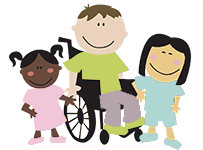Early Signs of Fine Motor Skills Deficit
[vc_row][vc_column][vc_column_text]Fine motor skills are a lifelong necessity. They begin to be developed in the first months of our lives and are the basis for most daily activities. They allow us to make smaller movements with our extremities like fingers, the tongue, and lips. Each child develops these skills at differing paces, but some children experience a delay that can be assessed and treated by a pediatric occupational therapist.
Early Signs of Motor Skill Delays
Symptoms before the 2 years of age:
- Lack of interest in grasping objects
- Difficulty sitting up
- Difficulty raising head
- Inability or difficulty to stand
- Inability or difficulty to crawl
- Delay or difficulty walking
These Symptoms Can Present Themselves From Preschool On
- Difficulty throwing a ball or playing sports
- Difficulty drawing or even holding a writing tool
- Difficulty with buttons and zippers
- Poor handwriting
- Clumsiness
If one, or a combination of these symptoms, are present, then the child should see a specialist who works with children with motor skills deficits. A child who had symptoms that they no longer exhibit should be seen by a specialist as well.
Common Tests to Determine Motor Skill Delays
 One of the most common tests that get administered to children suspected to suffer from developmental coordination disorder is the Beery-Buktenica test. This test is to detect problems with fine motor skills, visual perception, and how the eye and hand work together.
One of the most common tests that get administered to children suspected to suffer from developmental coordination disorder is the Beery-Buktenica test. This test is to detect problems with fine motor skills, visual perception, and how the eye and hand work together.
There is also the Lincoln-Oseretsky Motor Development Scale, which will assess motor skills development.
Treatment
Physical therapy is one of many ways to help children with their fine motor skills. Its job is to strengthen muscles, teach the child to compensate for their impaired movements, and treat the issues at their source.
If your child displays any of these symptoms, be assured that there is help from many caring professionals whose job and passion is to help your child continue to develop the skills they need for life and answer for you and your loved ones. With treatment, especially if caught early, your child will learn skills that he or she will take with them into their lives and that will help them thrive in whatever activities they find themselves involved in.[/vc_column_text][/vc_column][/vc_row]
